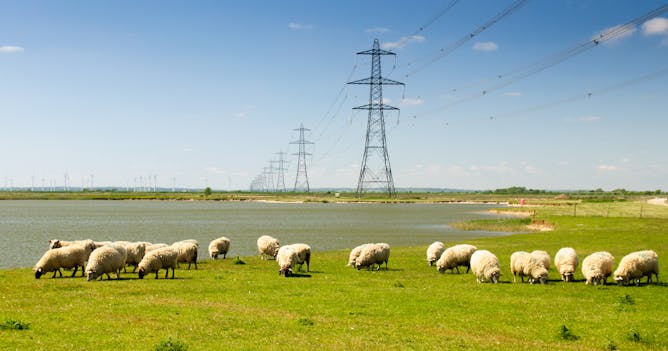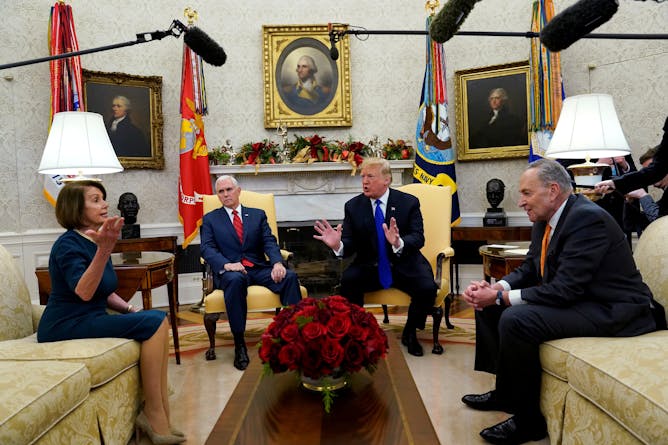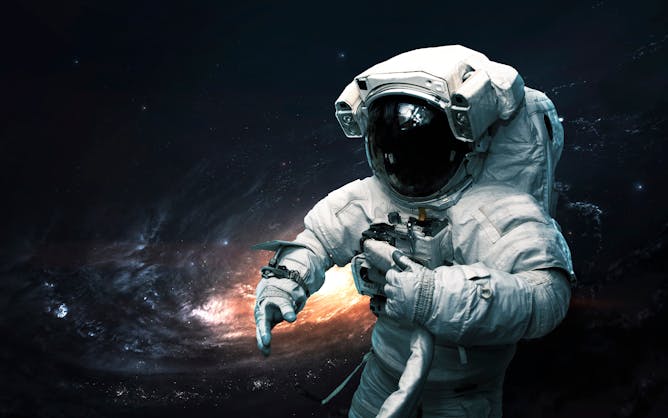|
|
|
Editor's note
|
|
Last year, for the first time since the industrial revolution, Britain went several days without any coal-powered electricity. Though coal and gas was used to generate three quarters of Britain’s electricity as recently as 2010, the country’s coal industry has since collapsed, largely replaced by wind and other renewables. It will be hard to maintain such rapid growth in renewable energy over the next decade, say Grant Wilson and Iain
Staffell, but thus far Britain’s energy transition has been remarkable.
A cosmic explosion producing as much energy as the sun radiates in 1,700 years showed up on an astronomical alert system last summer. Nicknamed “The Cow”, the flare is one of the most mysterious and well-observed objects recently discovered in the sky. Paul M. Kuin explains how he and other researchers are solving the puzzle of what it actually is.
Meanwhile, our colleagues at The Conversation US have been busy covering the government shutdown. Negotiations expert Parker Ellen looks at how both Trump and the Democrats could end up claiming a win. And The Conversation Canada considers a fascinating experiment involving an astronaut and his identical (earth-bound) twin.
|
Will de Freitas
Environment + Energy Editor
|

|
|
Top stories
|

By Joe Dunckley / shutterstock
Grant Wilson, University of Birmingham; Iain Staffell, Imperial College London
But electric vehicles will pose a significant challenge over the next decade.
|

Trump meets with Schumer and Pelosi at the White House in December.
Reuters/Kevin Lamarque
Parker Ellen, Northeastern University
Trump, Schumer and Pelosi have fallen into a classic negotiation trap that often prevents deals from getting made, which has led to the shutdown stalemate.
|

Astronauts on space missions experience various physiological effects.
Shutterstock
Christine Bear, University of Toronto
Here's what NASA scientists discovered when an astronaut went into space and his twin remained on Earth.
|
Science + Technology
|
-
Paul M. Kuin, UCL
Odd event could be explained by a star being ripped apart by a black hole.
-
Michael Hartmann, Heriot-Watt University
Combining quantum computing with neural networks could produce AI that can make very complex decisions quickly.
-
Alison Stone, Lancaster University
Our birth is one of the all-important bookends of our lives and affects so much of what comes later – so why don't we think about it more?
-
Shareen Doak, Swansea University; Martina G. Vijver, Leiden University; Martin Clift, Swansea University
Nanotechnology and materials are the source of countless innovations, but we don't accurately know how they are affecting humans and the environment.
|
|
Politics + Society
|
-
Julie M Norman, Queen's University Belfast
If the violence feared in the aftermath of the election does manifest, it will be because of Congolese society’s commitment to and defence of democracy, not in spite of it.
-
Rebecca Rist, University of Reading
The history of how the Catholic Church has viewed the words of popes.
-
Peter Bloom, The Open University
Required is a new fantasy which combines a global perspective with a radical desire for change.
-
Megan Carras, University of St Andrews
For all the attractions of little dwellings, there are some drawbacks that need to be factored in.
|
|
Environment + Energy
|
-
Sharon George, Keele University; Deirdre McKay, Keele University
Some of our favourite music formats might not be as environmentally friendly as we think.
-
Morten Fibieger Byskov, University of Warwick
From eating less meat to foregoing flying, individual obligations make up our understanding of how to fight climate change, letting polluters off the hook and stifling real change.
|
|
Cities
|
-
Alessandro Melis, University of Portsmouth
From the amphitheatre at Arles to London's Wembley, stadiums can be adapted to serve their cities.
|
|
Business + Economy
|
-
Heejung Chung, University of Kent
Flexible working is seen as a solution to the gender pay gap but cultural norms are getting in the way.
|
|
| |
Featured events
|

|
Picture Gallery, Egham, Surrey, TW20 0EX, United Kingdom — Royal Holloway
|

|
Zochonis Building, The University of Manchester, Oxford Road, Manchester, Manchester, M13 9PL, United Kingdom — University of Manchester
|

|
Windsor Building Auditorium, Egham, Surrey, TW20 0EX, United Kingdom — Royal Holloway
|

|
Windsor Building Auditorium, Egham, Surrey, TW20 0EX, United Kingdom — Royal Holloway
|
|
|
|
| |
| |
| |
| |
| |
|
|
|
|
|
|
|